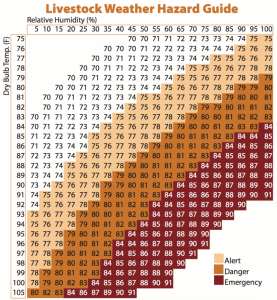WASHINGTON, May 21, 2021 — The U.S. Department of Agriculture Farm Service Agency (FSA) today published the first notice of funding availability (NOFA) (PDF, 242 KB) announcing loan payments for eligible borrowers with qualifying direct farm loans under the American Rescue Plan Act Section 1005. The official NOFA will be published in the Federal Register early next week and USDA expects payments to begin in early June and continue on a rolling basis. A subsequent notice addressing guaranteed loan balances and direct loans that no longer have collateral and have been previously referred to the Department of Treasury for debt collection for offset, will be published within 120 days.
“The American Rescue Plan has made it possible for USDA to deliver historic debt relief to socially disadvantaged farmers and ranchers beginning in June,” said Agriculture Secretary Tom Vilsack. “USDA is recommitting itself to gaining the trust and confidence of America’s farmers and ranchers using a new set of tools provided in the American Rescue Plan to increase opportunity, advance equity and address systemic discrimination in USDA programs.”
Section 1005 of the American Rescue Plan Act of 2021 (ARPA) provides funding and authorization for USDA FSA to pay up to 120 percent of direct and guaranteed loan outstanding balances as of January 1, 2021, for socially disadvantaged farmers and ranchers as defined in Section 2501(a) of the Food, Agriculture Conservation, and Trade Act of 1990 (7 U.S.C. 2279(a)). Section 2501(a) defines a socially disadvantaged farmer or rancher as a farmer or rancher who is a member of a socially disadvantaged group, which is further defined as a group whose members have been subjected to racial or ethnic prejudice because of their identity as members of a group without regard to their individual qualities. Qualifying loans as part of today’s announcement are certain direct loans under the Farm Loan Programs (FLP) and Farm Storage Facility Loan Program (FSFL).
For much of the history of the USDA, socially disadvantaged farmers and ranchers have faced discrimination—sometimes overt and sometimes through deeply embedded rules and policies—that have prevented them from achieving as much as their counterparts who do not face these documented acts of discrimination. Over the past 30 years, several major civil rights lawsuits have compensated farmers for specific acts of discrimination—including Pigford I and Pigford II, Keepseagle, and the Garcia cases. However, those settlements and other related actions did not address the systemic and cumulative impacts of discrimination over a number of decades that the American Rescue Plan now begins to address.
Sections 1005 and 1006 of ARPA provide USDA with new tools to address longstanding inequities for socially disadvantaged borrowers. Section 1006 of ARPA provides additional funding to begin long-term racial equity work within USDA, including to address heirs property claims and to stand up an Equity Commission to identify barriers to access USDA programming.
To learn more about the loan payments to socially disadvantaged farmers and ranchers, visit www.farmers.gov/americanrescueplan.
USDA touches the lives of all Americans each day in so many positive ways. In the Biden-Harris Administration, USDA is transforming America’s food system with a greater focus on more resilient local and regional food production, fairer markets for all producers, ensuring access to safe, healthy and nutritious food in all communities, building new markets and streams of income for farmers and producers using climate smart food and forestry practices, making historic investments in infrastructure and clean energy capabilities in rural America, and committing to equity across the Department by removing systemic barriers and building a workforce more representative of America. To learn more, visit www.usda.gov.
#
USDA is an equal opportunity provider, employer, and lender.
Contact Email: press@usda.gov

